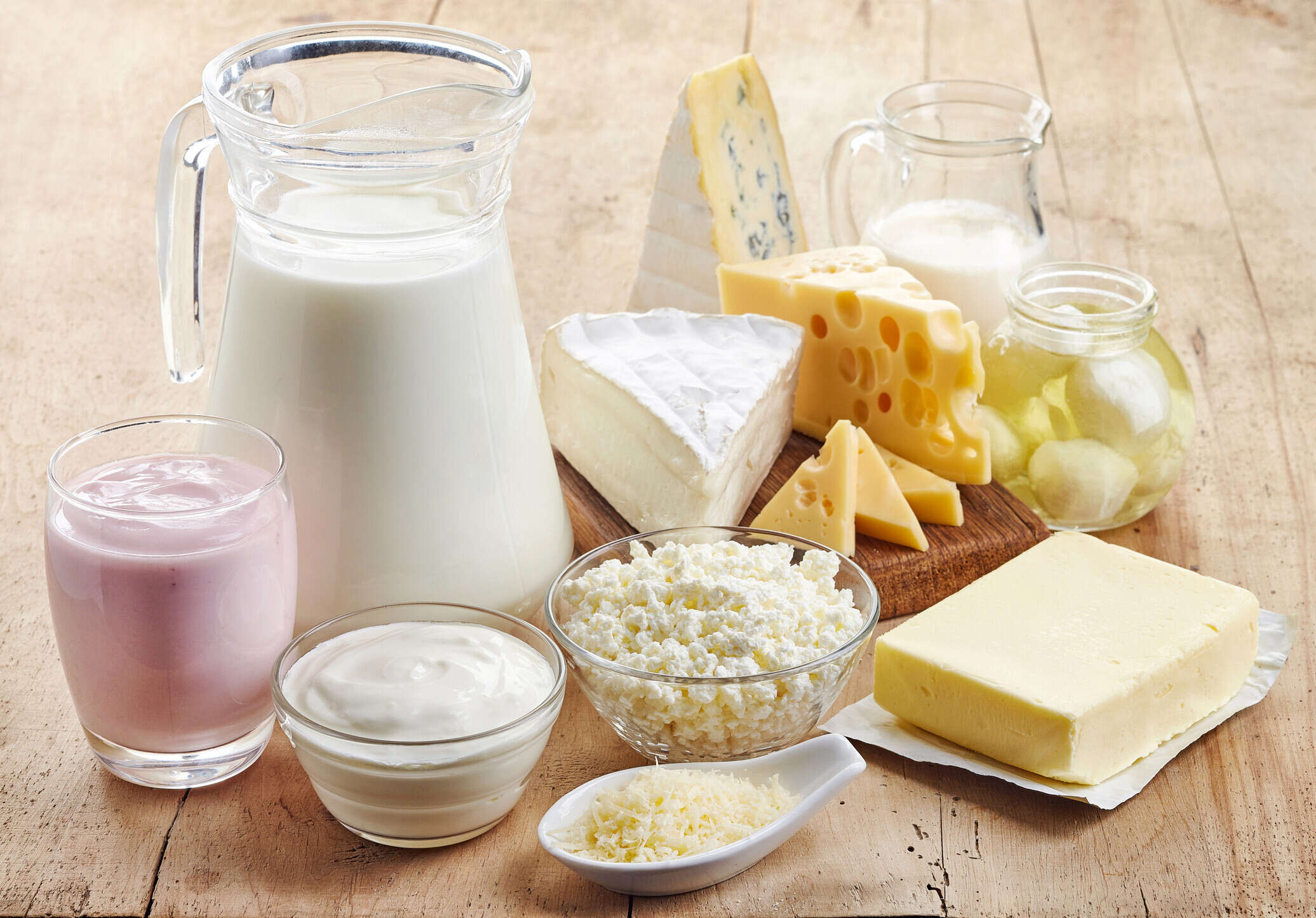
Dairy products have been a staple in diets worldwide for centuries. From creamy milk to tangy yogurt, these foods offer a range of flavors and nutritional benefits. But how much do you really know about them? Did you know that cheese was accidentally discovered over 4,000 years ago? Or that milk is packed with essential nutrients like calcium and vitamin D? Whether you're a fan of ice cream, butter, or cheese, there's always something new to learn. In this post, we'll share 29 fascinating facts about dairy products that might surprise you. Get ready to dive into the creamy world of dairy!
The Basics of Dairy Products
Dairy products are a staple in many diets worldwide. From milk to cheese, these foods offer a range of flavors and nutritional benefits. Let's dive into some fascinating facts about dairy products.
-
Milk is a complete food: It contains essential nutrients like calcium, protein, and vitamins D and B12, making it a well-rounded choice for many.
-
Cheese has been around for millennia: Evidence suggests cheese-making dates back over 7,000 years.
-
Yogurt is a probiotic powerhouse: It contains live bacteria beneficial for gut health.
-
Butter is made from cream: Churning cream separates the butterfat from the buttermilk, resulting in butter.
-
Lactose intolerance is common: About 65% of the global population has difficulty digesting lactose, the sugar in milk.
The Nutritional Benefits
Dairy products are not just tasty; they are packed with nutrients that support overall health. Here are some key nutritional benefits.
-
Calcium for strong bones: Dairy is a primary source of calcium, crucial for bone health.
-
Protein for muscle repair: Milk and cheese provide high-quality protein necessary for muscle repair and growth.
-
Vitamin D for immune support: Fortified dairy products help maintain healthy immune function.
-
Potassium for heart health: Dairy products like milk and yogurt contain potassium, which helps regulate blood pressure.
-
Phosphorus for energy: This mineral found in dairy is vital for energy production and storage.
Fun Facts About Dairy Products
Dairy products have some quirky and fun aspects that might surprise you. Let's explore these interesting tidbits.
-
Cheese caves exist: Some cheeses are aged in caves to develop unique flavors.
-
Milk can be frozen: Freezing milk extends its shelf life without losing nutritional value.
-
There are over 1,800 types of cheese: From cheddar to gouda, the variety is staggering.
-
Butter sculptures are a thing: Artists create intricate sculptures using butter, especially at state fairs.
-
Milk was once a luxury: In ancient Rome, milk was considered a luxury item.
Dairy in Different Cultures
Dairy products play a significant role in various cultures around the world. Here are some cultural insights.
-
India loves its ghee: Clarified butter, or ghee, is a staple in Indian cuisine.
-
France is famous for cheese: The country boasts over 400 varieties of cheese.
-
Greek yogurt is a staple: Known for its thick texture, Greek yogurt is a key part of the Mediterranean diet.
-
Swiss fondue: This melted cheese dish is a Swiss tradition enjoyed during social gatherings.
-
Italian gelato: This creamy dessert is a beloved treat in Italy.
Environmental Impact of Dairy Farming
Dairy farming has both positive and negative environmental impacts. Here are some important points to consider.
-
Methane emissions: Cows produce methane, a potent greenhouse gas, contributing to climate change.
-
Water usage: Dairy farming requires significant water resources for animal hydration and crop irrigation.
-
Sustainable practices: Some farms adopt sustainable practices like rotational grazing to reduce environmental impact.
-
Manure as fertilizer: Cow manure is often used as a natural fertilizer, enriching soil health.
-
Carbon footprint: Efforts are being made to reduce the carbon footprint of dairy farming through technology and innovation.
Dairy Alternatives
For those who can't or choose not to consume dairy, there are plenty of alternatives available. Here are some popular options.
-
Almond milk: Made from ground almonds, it's a popular dairy-free milk alternative.
-
Soy milk: Rich in protein, soy milk is a common substitute for cow's milk.
-
Coconut yogurt: This dairy-free yogurt is made from coconut milk and offers a creamy texture.
-
Cashew cheese: A vegan alternative to traditional cheese, made from blended cashews.
The Cream of the Crop
Dairy products play a huge role in our daily lives. From providing essential nutrients like calcium and vitamin D to adding flavor to our meals, they’re indispensable. Whether you’re a fan of milk, cheese, yogurt, or butter, each has its unique benefits and uses. Remember, moderation is key. Too much of anything can be harmful, even if it’s packed with nutrients. Also, consider exploring alternatives like almond or soy milk if you’re lactose intolerant. These options can offer similar benefits without the discomfort. Lastly, always check labels for added sugars or artificial ingredients. Natural and organic choices are often the best. So next time you reach for that glass of milk or slice of cheese, you’ll know a bit more about what makes dairy products so special. Enjoy your dairy, but do it wisely!
Was this page helpful?
Our commitment to delivering trustworthy and engaging content is at the heart of what we do. Each fact on our site is contributed by real users like you, bringing a wealth of diverse insights and information. To ensure the highest standards of accuracy and reliability, our dedicated editors meticulously review each submission. This process guarantees that the facts we share are not only fascinating but also credible. Trust in our commitment to quality and authenticity as you explore and learn with us.


